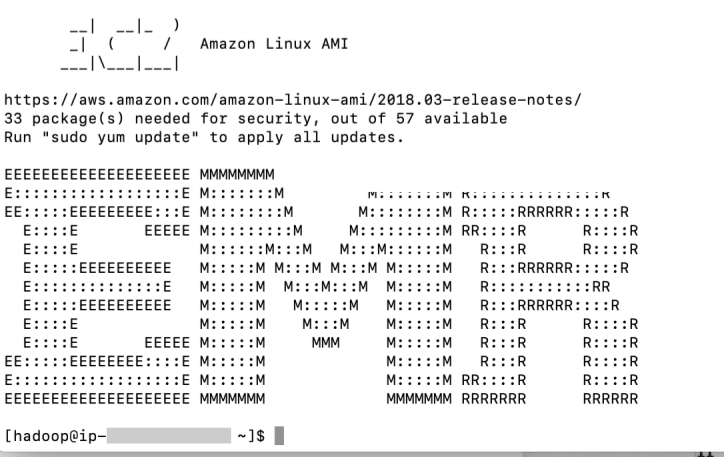
How to create and run an EMR cluster using AWS CLI
I received my BSc degree in Biotechnology from University of Science, Vietnam National University at Ho Chi Minh city, Vietnam in 2005. After graduation, I worked as a young lecturer and research associate at the same university for one year. In 2006, I won a very high competitive scholarship, Vietnam Education Foundation (VEF) Fellowship, which, together with the University of Missouri - Columbia and Dr. Gary Stacey's labroratory, provided financial support for my PhD study in the United States. My research focus was to discover the phosphorylation activities occuring during the early interaction between the symbiotic bacterium (Bradyrhizobium japonicum) and the soybean root hair single cells using multi-disciplinary approaches.
After graduation in December 2012, I enjoyed my life in the Golden state California, U.S., as a mother, a biological data analysis freelancer, and a freelance scientific illustrator, while regularly involved in academic and science duties with my home university in Vietnam, such as serving as many scientific advisor and masters thesis committees; paper reviewing, scientific book proofreading; etc.
During this period (2013 - 2016), I also challenged myself with something totally new and exciting: A part time assistant product manager for LucatStudios Inc., a small mobile app studio. I had learned a lot about launching new mobile apps, how to improve UI/UX, how to acquire and retain users via growth hacking. My user-centric mindset and attention to detail were greatly enhanced during this exciting journey.
From 2017 to 2019, I came back to Vietnam and worked as a lecturer at the University of Science, Vietnam National University at Ho Chi Minh city, Vietnam. My teaching and reseach mainly focused on Bioinformatics. I also led the Department of Molecular and Environmental Biotechnology (20+ staffs) to successfully obtain the quality assurance certificate from the ASEAN University Network-Quality Assurance for the Biotechnology master program. Normally, it is the time consuming 2-3 year project: Beside the tedious process of collecting, analyzing data, and writing up the self-report for the recent 5-year period of the education program, this project includes the unpredictable and difficult communication to the various stakeholders such as students, teaching and non-teaching staffs, employers, etc., for collecting feedbacks. It was considered a stuning success since we managed to finish it within a year.
My career trajectory has been challenging with many twists and turns. Eventually, data science, the process of obtain, explore, model and interpret, a process of making something out of seemingly nothing, has never failed to delight me every time. In 2019, I launched my industry career as a freelancer, undertaking multiple data projects spanning genomics, proteomics, graduate education, and healthcare.
I currently hold a data engineer role at Meta Platforms, Inc. in a contractor position, and I'm actively seeking new challenges. My enthusiasm for continuous growth and adaptability is a driving force in my professional journey.
I have received many messages asking me for tips on career changes, such as:
- How did you do to switch from biology to computer science?
- What are your tips for learning programming with no computer science background?
The reality is that, although my background is molecular biology, I have been trained as a multi-disciplinary scientist to effectively work both in wet-lab and dry-lab. I had used Perl and R regularly to write script for my transcriptomics, proteomics data analysis since my Ph.D. program. During the first 3 years of my Ph.D program, beside the requirements courses for my Ph.D. degree, I also took many undergrateduate courses such as Algorithm Design and Programming 1 and 2, Problems in Computer Science, etc. to build up my computer science background. I also was interested and gained my machine learning experience since my 2 years working as an research assistant in Digital Biology Laboratory with the protein structure prediction project. Programming is a part of my professional career. I have used it for various projects and data such as transcriptomics, proteomics, education, healthcare, etc. Therefore, I don't think I have any sharp turn in career path.
People said that generally, it takes around 10 years to develop expertise in most areas. The same is applied for programming. My biology colleagues/friends often told me they had the same problem in learning programming: They learned it many times, but then forgot it and had to learn it again. In my opinion, it is because they don't have enough practice and don't have many chances to use programming a lot in their data. The key for learning programming or becoming a programmer is practice, and more importantly, deliberative practice.